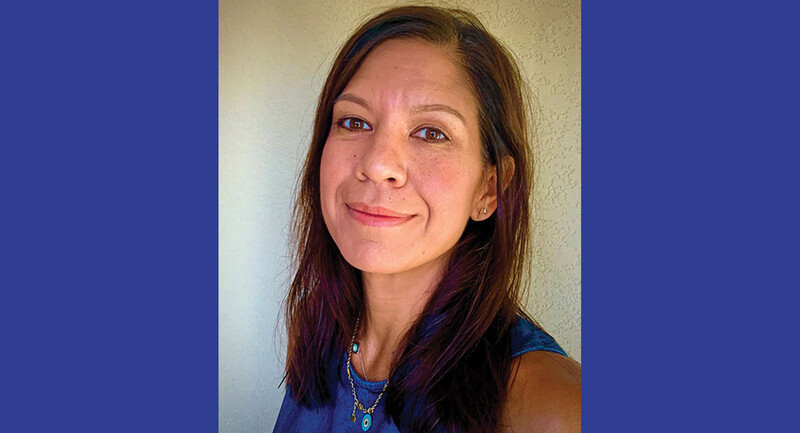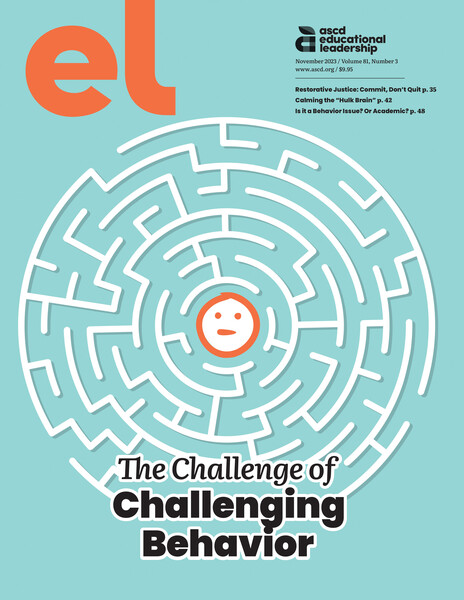Sometimes it seems no one wants to be a teacher. Only four percent of all U.S. college graduates graduate with a degree in teaching. Who could blame them? Between politics and low pay, changing curriculum and classroom management, teaching can be a crushing experience. It's the only job in which you can say "I hate my job!" and the job can literally hate you back. For example, I remember challenging my 5th-grade student, Javon—a 12-year-old child who was in foster care and had a learning disability—to revise his essay with my feedback. He replied, "I hate you."
Ironically, as much as Javon hated me at the beginning of that unit, I knew he would appreciate and even love me in the end. And as much as I loathed my job some days, I loved it too. In the midst of this struggle between love and hate, I found my commitment to teaching. With 20-plus years in the classroom, I'm still passionate about education.
At an ASCD Community Panel in July 2023, the question of how to define passion was posed. I define it as persistence in achieving an almost unattainable goal and finding joy in that strenuous effort. Passion for your work is that struggle between love and hate, ease and effort. It's having the mentality of an extreme mountain climber daring a Mount Everest climb. Climbers embrace the arduous journey. They invest in rigorous practice and research while seeking guidance from mentors to surmount challenges and achieve their goals. Like mountain climbers, passionate teachers exhibit enthusiasm and determination—because teaching is, like Mount Everest, a multifaceted challenge.
Passionate teachers exhibit enthusiasm and determination—because teaching is, like Mount Everest, a multifaceted challenge.
Yet somehow, we've flattened teaching into a one-dimensional discipline. You're either right or you're wrong. You either know how to teach or you don't. You love it or you hate it—and right now, there isn't much love for teaching. It's hard to have passion for this work when you hear so many dispiriting, black-and-white messages even from veteran teachers who've reached the proverbial mountain peak.
Reclaiming Your Passion
Maybe it's just a matter of stepping out of the fog into a clearing to reclaim our zeal for teaching—once again or even initially. Five practices drawn from my experience can help educators sustain their passion:
1. Critically reflect on your identity and build your commitment. Why start here? True commitment powerfully sustains passion. And as Paulo Freire said, "Those who authentically commit themselves to the people must re-examine themselves constantly." If we're authentically committed to teaching and serving others, it's critical to understand our own identity markers. Such understanding helps us create more inclusive, equitable learning environments. Realizing you view the world through a particular lens lets you see how your experiences, privileges, and sense of self affect your interactions with students and your teaching practice, and actively work against biases.
For example, when I unpacked my identity as a first-generation American person of color, I understood that I had been fed messages about my potential worth in a white-dominant society. Rejecting them served as a powerful skill to refuse messages I'd long heard about children like Javon. While Javon challenged me with his behaviors and lack of effort, I knew I could either continue the dominant narrative about children in poverty or see him as a whole child, with a life of opportunity ahead of him—and commit to supporting him.
2. Discover your purpose in teaching. Unpacking your identity will help uncover your purpose in teaching, which must be rooted in having faith in every child's ability to achieve their fullest potential. If you don't believe that all children can achieve at high levels, discouraging results will likely extinguish your motivation to keep going. Remember, passion is rooted in the complexity of the journey, which will include success and failure. As long as you believe that all students can and will learn, you won't want to stop until they do. This is your guiding purpose.
3. Deeply understand your craft. You'll encounter obstacles on your journey, including ones that make it hard to decide clearly what methods to use in your teaching and what content to teach. You'll face "curriculum wars," "instructional strategy face-offs," and online "one-stop-shopping" for cute products that promise to make teaching easy. Being knowledgeable about your craft is one way to make good choices and avoid disputes or distractions that sap your energy. Teaching is an ancient profession, critical to the progress of humanity. While modern tools alleviate some of our load, we should take the time to learn and appreciate the methods of our elders—and practice. As teacher Publilius Syrus said circa 40 BC, "Practice is the best of all instructors."
4. Recognize inequities. As you reach the summit, you will have to recognize systemic inequities, a seemingly impenetrable boulder calcified by half-truths, racism, and bigotry. But remember, in our classrooms, we can chip away at that rock and carve new paths. We can enrich our curriculum with untold histories, so students see themselves represented, and design engaging lessons. We can consistently monitor to make sure students are on track to reach their goals and quickly adjust when needed. Recognizing systemic inequities shouldn't make teachers feel hopeless. It should liberate them to find hope and purpose—passion—in being a part of dismantling those systems.
Recognizing systemic inequities shouldn't make teachers feel hopeless. It should liberate them to find hope and purpose—passion—in being a part of dismantling those systems.
Teachers are first responders to systemic inequities. While the dominant narrative often blames educators for schools' problems, thousands of passionate teachers work tirelessly every day to transform the lives of all children and disrupt inequity—like those profiled in Gloria Ladson-Billings's The Dream Keepers (Jossey Bass, 1994) and similar studies of committed teachers. We may not know these teachers' names, but the kids do; they talk about them often. Kids understand the difference between fair and unfair and recognize the teachers who are working toward fair.
5. Find your people. Finally, never climb Mount Everest alone—but avoid folks on the path who packed poorly for the journey; they'll whine and complain. Find folks who align with your purpose and beliefs to be your guides, mentors, and supports. Passion doesn't live in a vacuum.
The Mountaintop
Javon begrudgingly turned in his revised essay. It was titled "Tough as Me." This young man, with all his challenges, was an incredible storyteller, though he didn't believe it. I entered his essay into a districtwide literary competition and, yes, Javon won! He presented his story to a citywide audience in a magnificent auditorium, and his biological mother attended the ceremony. He teared up while he read his essay, and I did, too. I knew then that Javon loved and appreciated me. He had climbed his own mountain. Or perhaps we had climbed the same one, side by side, and just enjoyed a different view from the top. I challenge you to find a better view than the sight of Javon up on that stage. This view is why we come to teaching and why we stay. We just need the passion to make it up there.







